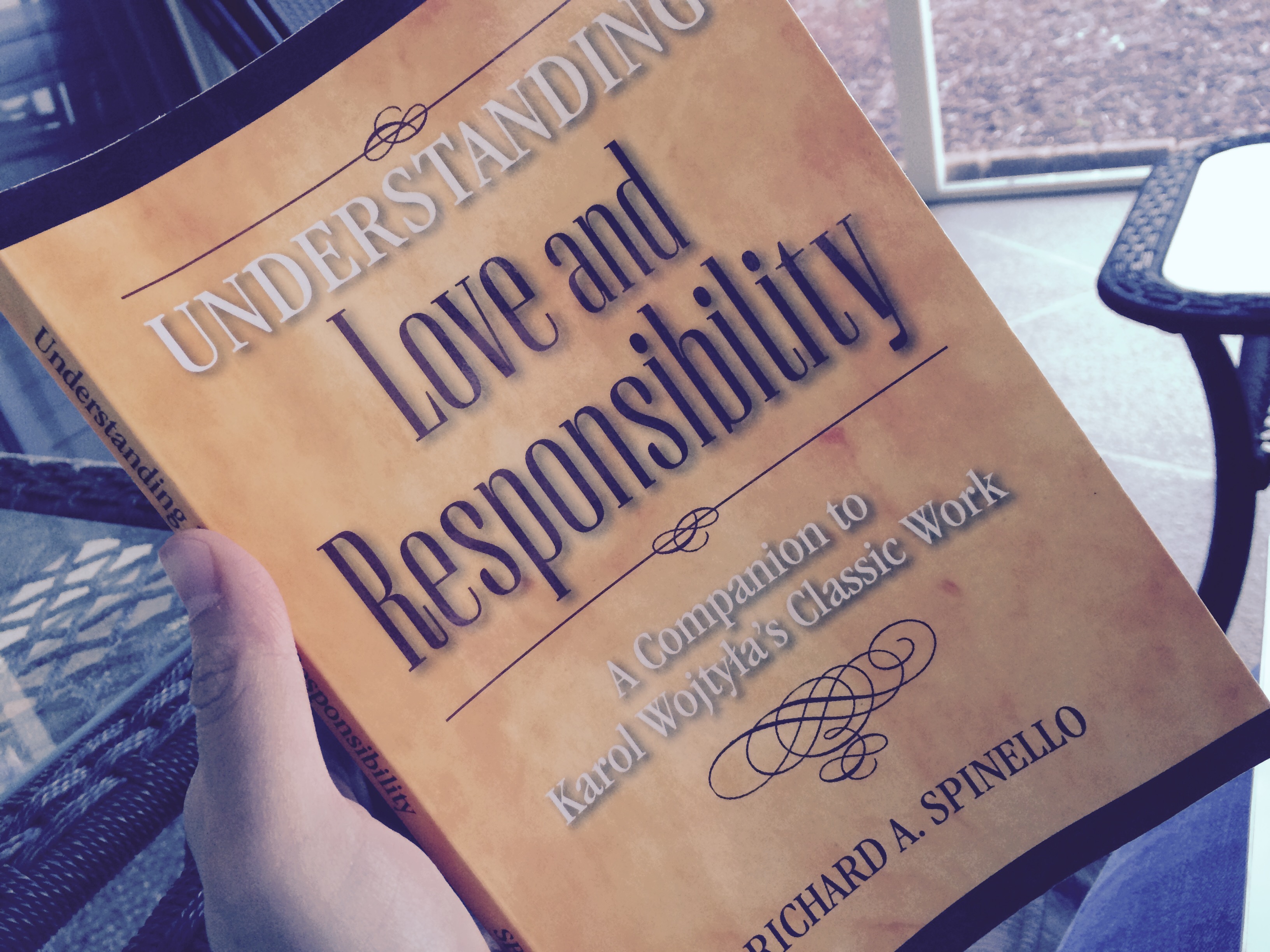The best book I ever have read is Love and Responsibility by Karol Wojtyla, a.k.a. St. John Paul II before he was pope. It is hundreds of pages of exactly what all of us need to know. But it is tragic, because it is hundreds of pages that most of us haven’t read.
Richard Spinello, author of Understanding Love and Responsibility, agrees: The “neglect of this extraordinary book is unfortunate,” he writes, about Wojtyla’s book. “Those who do take up the challenge of carefully reading Love and Responsibility will be amply rewarded.”
Believe me when I say he kids you not.
Love and Responsibility is — as Sr. Helena Burns puts it — a “philosophy of the body.” It is dense, but it is fantastic. I bought it in 2009. It was 2012 before I could comprehend it. When it clicked, I could conclude what I have since told a heck of a lot of people:
Love and Responsibility can change your life. Which is why, in Understanding Love and Responsibility, which I finished reading last week, Spinello condenses what Wojtyla wrote. He boils a big, brilliant, widely ignored book into a smaller one. In some sections, Spinello’s book is an easier read than Wojtyla’s. In others, Spinello’s is as dense. His book, as described by its subtitle, is “a companion” to Wojtyla’s classic work.
Now that I’ve read both, I don’t think the order in which you read them matters. What actually matters, for each of us and for the world around us, is that you read at least one of them. Why? Because both books hold what every human needs to know about love, marriage, and sex.
That includes, but isn’t limited to, the following points Spinello made in his book:
1. Marriage is supposed to have a mission.
How is it possible to overcome a “consumer attitude” toward persons and avoid situations where one person becomes for another merely an object of use? To prevent that from happening, people who live or work together must assimilate the common good of their respective communities and make it their own. (Page 27)
In order to escape the trap of using one another, a married couple must focus on the “common end” of marriage: procreation, family, and the continual maturing of the marital relationship. So long as a married couple subordinate themselves to this good, it is much less likely that they will exploit each other. Concentration on that common good will enable an individual to overcome his self-interest (which leads to using others) and seek this larger purpose instead. (Page 27)
2. Decisions aren’t designed to be made based solely on feelings.
A properly integrated sensuality … is subservient to reason and subdued by the profound realism of virtue. (Page 95)
…just because an action “feels right” and provides pleasure, it doesn’t necessarily follow that this action is actually good for (you or for your significant other). (Page 97)
3. Gratification is not the purpose of marriage.
…when pleasure-seeking controls a romantic relationship, it can only end in tragic failure. (Page 33)
A relationship based on the subjective good of pleasure cannot survive, since the couple will remain together only so long as they bring pleasure to each other. Pleasure and sensual delight are not substantial goods that can unite people for very long. (Page 59)
4. An urge is not necessarily a reason to have sex.
If man allows this sexual drive to determine and shape his actions, he relinquishes his precious freedom. (Page 36)
No man or woman is at the mercy of the sexual urge the way an animal is at the mercy of its instincts. (Page 38)
He or she must prudently subject (the sexual urge) to reason, which alone can discern the moral truth about when and how to follow this urge. (Page 38)
…the sexual drive … must always be guided by reason and prudence. (Page 42)
5. Chastity prepares a person for love.
…without chastity’s discipline, sexual relations can never become anything more than mutual sexual satisfaction. (Page 93)
(Chastity) entails much more than sexual restraint. … (it is) a necessary condition for love. (Page 93)
Chastity prevents objectification by keeping sensuality and sentiment in their proper place so that they do not overwhelm reason and will. (Page 103)
[callout]For information about Understanding Love and Responsibility by Richard Spinello, click here. For information about Love and Responsibility by Karol Wojtyla, click here.[/callout]

